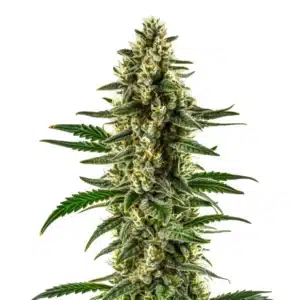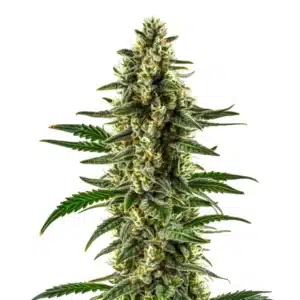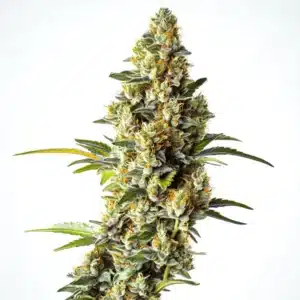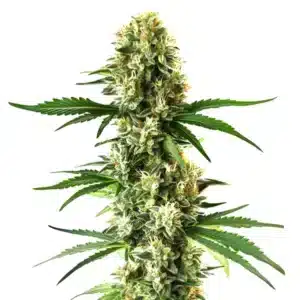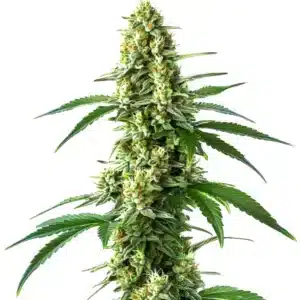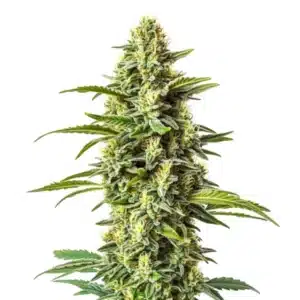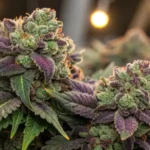
Cannabis Treatment for Alcoholism: A New Perspective
Overview of Cannabis Treatment for Alcoholism
Historical Background and Alternative Uses
Ancient healers used plant remedies for various conditions, and some traditional practices incorporated cannabis to ease stress and support sobriety. Early herbalists mixed natural extracts to promote calm in individuals with dependency issues. Although these practices were not specifically aimed at alcoholism, they set the stage for later research on natural therapies. This historical insight informs modern approaches to cannabis treatment for alcoholism, emphasizing its potential to complement recovery programs.
Records from traditional medicine reveal that many cultures believed in the calming properties of natural herbs. Cannabis was sometimes included in herbal mixtures meant to balance emotions and reduce harmful urges. These practices, passed down over generations, inspire today’s research into alternative treatment methods. As modern approaches evolve, professionals now develop structured interventions, such as a sample treatment plan for cannabis use disorder, to help individuals manage their dependency effectively. The legacy of these ancient remedies continues to influence modern perspectives on natural support in the context of alcohol dependency.
Recommended Strains
Matanuska Tundra
|
|
THC | 16% (Medium) |
|
|
Type | Feminized |
|
|
Yield | Medium |
|
|
Phenotype | 45% Indica / 55% Sativa |
Matanuska Tundra Regular
|
|
THC | 15% - 20% (Medium) |
|
|
Type | Regular |
|
|
Yield | Low |
|
|
Phenotype | 80% Indica / 20% Sativa |
Current Applications in Harm Reduction
Modern approaches now incorporate cannabis treatment for alcoholism as a supportive measure in harm reduction. Some clinics and recovery centers are investigating the use of cannabinoids to ease withdrawal symptoms and reduce alcohol cravings. The idea is not to replace conventional therapy but to offer an adjunct that can improve overall well-being. This approach seeks to integrate natural compounds into treatment plans to provide additional support during recovery.
Recent applications focus on using specific cannabis formulations to stabilize mood and reduce stress during detoxification. Clinicians sometimes include these natural therapies alongside medications to help patients manage the psychological challenges of quitting alcohol. The integrative use of cannabis treatment for alcoholism shows promise in supporting long-term sobriety by addressing both physical and emotional symptoms.
Promos & Deals
Scientific Evidence and Mechanisms in Cannabis Treatment for Alcoholism
Neurochemical Interactions and Behavioral Impact
Laboratory studies have demonstrated that cannabinoids interact with receptors in the brain that regulate mood, stress, and reward. These neurochemical interactions may help lessen alcohol cravings and reduce the severity of withdrawal symptoms. Research on cannabis treatment for alcoholism suggests that natural cannabinoids can modulate neurotransmitter release and lower anxiety, potentially aiding individuals in their recovery journey.
Research Findings from Preclinical and Clinical Studies
Preclinical studies have provided early evidence that natural cannabinoids may reduce alcohol intake in animal models. Clinical research has begun to evaluate whether cannabis treatment for alcoholism can lead to measurable improvements in reducing alcohol consumption and easing withdrawal symptoms. Several small-scale trials report modest benefits, such as improved mood and reduced anxiety. These findings support further investigation into the role of natural therapies in recovery settings.
Researchers collect data on dosage, formulation, and patient outcomes in these studies. The results, though preliminary, show that cannabis treatment for alcoholism might help individuals manage their dependence when used alongside established medical therapies. As more controlled trials are conducted, the evidence will clarify the potential benefits and limitations of natural cannabis products in supporting sobriety and reducing relapse rates.
Integrative Approaches for Managing Alcoholism with Cannabis
Combining Natural Remedies with Conventional Therapies
Many healthcare professionals now consider combining cannabis treatment for alcoholism with conventional recovery methods. This integrative approach involves using natural cannabis products alongside medications and counseling to address both physical withdrawal and psychological stress. The goal is to create a balanced treatment regimen that leverages the calming effects of cannabinoids while maintaining standard care practices.
Clinics incorporating this approach often tailor treatment plans to include natural therapies as an adjunct to behavior therapy and pharmacological interventions. The combination may help mitigate withdrawal symptoms and reduce cravings, supporting overall recovery. By aligning conventional methods with cannabis treatment for alcoholism, providers aim to improve patient comfort and promote sustained sobriety through complementary measures.
Personalized Dosage and Treatment Options
Effective management of alcohol dependence with natural therapies requires a personalized approach. Healthcare providers adjust cannabis treatment for alcoholism by considering individual factors such as body weight, severity of dependency, and concurrent medical conditions. Customized dosage and delivery methods, such as tinctures, capsules, or vaporized forms, help optimize the benefits while minimizing side effects. This tailored approach supports a more comfortable recovery process.
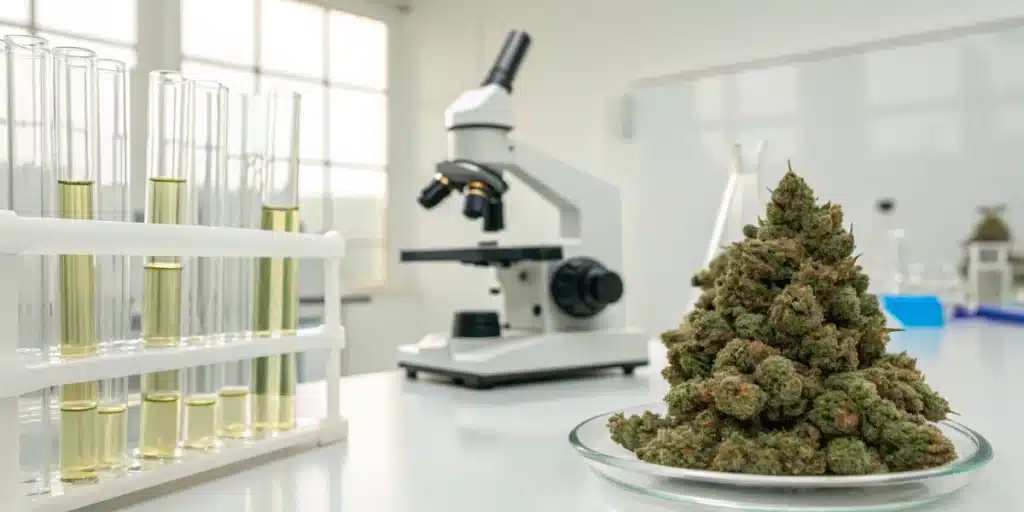
Safety, Quality, and Regulatory Standards in Cannabis Treatment for Alcoholism
Legal Framework and Quality Control Measures
Strict legal standards govern the production and distribution of natural cannabis products used for therapeutic purposes. Regulatory agencies require that all products intended for cannabis treatment for alcoholism undergo extensive laboratory testing to verify purity, potency, and the absence of contaminants. Manufacturers follow rigorous quality control protocols during cultivation, extraction, and packaging. These legal and quality assurance measures build consumer trust and ensure that natural therapies are both safe and effective.
Certification processes and independent audits play a significant role in maintaining consistent product quality. Legal frameworks differ by region, but many areas have established clear guidelines for natural cannabis products. These regulations ensure that cannabis treatment for alcoholism meets high safety standards and provides reliable support as an adjunct to traditional treatments in recovery programs.
Safe Consumption and Storage Guidelines
Consumers must adhere to safe consumption practices when using natural cannabis products. Clear dosage instructions and storage guidelines help maintain product integrity and maximize therapeutic benefits. Patients should store cannabis treatment for alcoholism in a cool, dry place, away from light and moisture, to preserve potency. Following these guidelines minimizes risks and ensures that the natural compounds remain effective throughout their shelf life.
Healthcare providers emphasize the importance of using products from reputable sources. Safe usage practices include regular monitoring and adherence to prescribed dosages. This careful management of natural therapies ensures that cannabis treatment for alcoholism is used responsibly and effectively, reducing potential side effects while supporting the overall recovery process in a secure manner.
Market Trends and Industry Developments in Cannabis Treatment for Alcoholism
Consumer Demand and Product Innovations
Recent market trends indicate a growing consumer interest in natural therapies as part of alcohol recovery programs. Demand for cannabis treatment for alcoholism is increasing as individuals seek alternative methods to complement conventional treatments. Manufacturers are innovating with new product formulations that provide precise cannabinoid profiles tailored for recovery support. These innovations include fast-acting tinctures, controlled-release capsules, and vaporization devices designed to improve absorption and dosing accuracy.
Policy Influences and Market Dynamics
Government policies and legislative reforms significantly impact the natural cannabis market. Recent regulatory updates have facilitated broader access to cannabis treatment for alcoholism by establishing clear quality control standards and streamlined approval processes. These policy influences encourage investment in research and product development while ensuring consumer safety. Market dynamics reflect a growing shift toward integrative health practices, with natural therapies increasingly recognized for their potential supportive benefits.
Industry analysts observe that favorable policies and robust market demand drive innovation in natural cannabis products. Companies are now better positioned to offer high-quality products that meet regulatory requirements and consumer expectations. This evolving market environment fosters competitive pricing, improved product formulations, and enhanced accessibility for those seeking cannabis treatment for alcoholism as part of their recovery journey.
In-Depth Discussion on Cannabis Treatment for Alcoholism
The discussion on cannabis treatment for alcoholism covers multiple dimensions, from historical practices and scientific research to integrative treatment strategies and market dynamics. Researchers have examined how natural cannabinoids influence brain chemistry and help reduce alcohol cravings, while clinicians focus on personalized treatment plans that incorporate natural therapies alongside conventional care. This multifaceted approach provides a broad view of how cannabis treatment for alcoholism might support recovery by addressing both physical and emotional aspects.
By synthesizing insights from historical data, experimental research, and clinical trials, stakeholders have developed a comprehensive strategy that integrates natural cannabis products into broader treatment regimens. This discussion underscores the importance of precise dosing, safe product formulation, and adherence to legal and quality standards. The collective effort aims to offer additional tools for those seeking to manage alcohol dependency through complementary, natural means.
Additional Insights on Cannabis Treatment for Alcoholism
Additional insights on cannabis treatment for alcoholism emerge from continuous research and evolving consumer trends. Advanced analytical methods have improved the precision of cannabinoid profiling, leading to more consistent and effective product formulations. Healthcare providers now rely on real-time research data to adjust treatment protocols and optimize dosing strategies for natural therapies. This dynamic field continually adapts to new evidence, offering updated perspectives on how cannabis treatment for alcoholism can support recovery.
Innovative cultivation practices and extraction techniques have contributed to higher product quality. The improved reliability of natural cannabis products has reinforced consumer trust and encouraged broader adoption in integrative recovery programs. Industry stakeholders work together to ensure that these products meet stringent safety and regulatory standards while delivering the supportive benefits required to complement conventional alcohol treatment.
Practical Considerations in Using Cannabis Treatment for Alcoholism
Patient selection is a critical component in the safe and effective use of natural therapies for alcohol recovery. Healthcare providers assess each individual’s overall health, degree of dependency, and current treatment regimen to determine if cannabis treatment for alcoholism may offer additional support. Personalized assessments help identify patients who might benefit from the adjunctive use of natural cannabis products, ensuring that the treatment plan addresses unique needs.
Current Research and Perspectives in Cannabis Treatment for Alcoholism
Ongoing research into natural therapies continues to shed light on the potential benefits of cannabis treatment for alcoholism. Controlled laboratory studies and early-phase clinical trials investigate how cannabinoids influence neurochemical pathways related to addiction. Preliminary data indicate that these natural compounds may reduce cravings and alleviate withdrawal symptoms when used alongside conventional treatments. Such findings add measurable support to the potential of natural cannabis products in recovery programs.
Clinical perspectives are evolving as more rigorous studies are conducted. Healthcare providers observe that integrating cannabis treatment for alcoholism into comprehensive care plans can result in improved emotional balance and reduced physical discomfort. Researchers are now focusing on optimal dosing, product consistency, and delivery methods to refine these natural therapies. The collective evidence supports the idea that cannabis treatment for alcoholism can be a valuable adjunct in managing alcohol dependency.
Market and Economic Perspectives on Cannabis Treatment for Alcoholism
The natural cannabis market is expanding as demand for complementary therapies grows. Manufacturers have responded by investing in research and development to produce high-quality cannabis products specifically designed for alcohol recovery support. Market data indicate that consumer interest in natural therapies is rising, driven by increased awareness of alternative approaches to managing addiction. Companies are innovating with new formulations that offer precise cannabinoid ratios tailored for recovery.
Economic trends reveal that favorable regulatory environments and progressive policy changes have boosted market confidence in natural cannabis products. Investment in sustainable cultivation and advanced extraction techniques has led to more reliable product offerings. As consumer demand continues to rise, the industry is poised for further growth, making cannabis treatment for alcoholism a dynamic and evolving sector that supports public health and recovery initiatives.
In-Depth Analysis on the Broader Implications of Cannabis Treatment for Alcoholism
This analysis examines the broader implications of incorporating natural therapies into alcohol recovery programs. Cannabis treatment for alcoholism may contribute to harm reduction by lowering the risk of relapse and reducing the severity of withdrawal symptoms. By offering a natural alternative to synthetic medications, these therapies may improve overall quality of life. The approach emphasizes the integration of natural support with conventional care to create a more comprehensive recovery plan.
Researchers and policymakers are increasingly interested in the societal benefits of using natural therapies for alcohol dependence. Reduced healthcare costs, improved emotional stability, and enhanced patient satisfaction are potential outcomes. This in-depth analysis considers how cannabis treatment for alcoholism might complement existing interventions, support public health objectives, and promote sustainable recovery practices on a broader scale.

FAQs about cannabis treatment for alcoholism
What benefits does cannabis treatment for alcoholism offer?
Cannabis treatment for alcoholism may help alleviate withdrawal symptoms, reduce cravings, and stabilize mood by interacting with brain receptors that regulate stress and reward. Research indicates that natural cannabinoids support emotional balance and may ease the physical discomfort of recovery. Many patients find that incorporating these natural products into their treatment plans leads to improved overall well-being and enhanced quality of life while undergoing conventional therapies, contributing to a more manageable recovery process.
How do experts determine the optimal use of cannabis treatment for alcoholism?
Experts determine the optimal use of cannabis treatment for alcoholism by evaluating cannabinoid profiles, analyzing clinical trial data, and assessing individual patient responses. They review product quality, safety standards, and dosage requirements to tailor natural therapies that effectively complement conventional treatments. Healthcare providers then customize treatment plans based on careful evaluations of each patient’s health status, ensuring that the natural products deliver consistent support and measurable benefits throughout the recovery process.
What safety protocols are followed when using cannabis treatment for alcoholism?
Healthcare professionals enforce strict safety protocols for cannabis treatment for alcoholism by ensuring that all products undergo comprehensive laboratory testing for purity, potency, and contaminants. Patients receive clear instructions on dosing, usage, and storage to minimize risks and maximize therapeutic benefits. Regulatory agencies consistently monitor product quality and adherence to legal standards, ensuring that natural therapies remain safe and effective as a supportive measure alongside traditional treatments in alcohol recovery programs.


